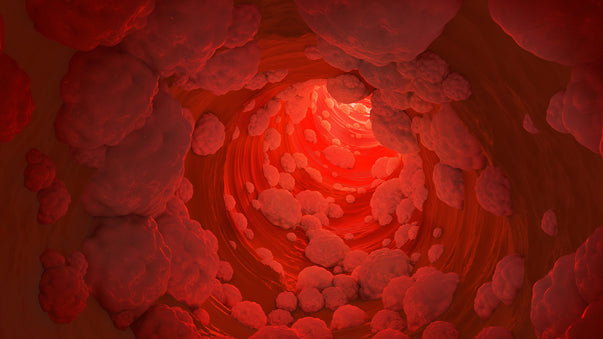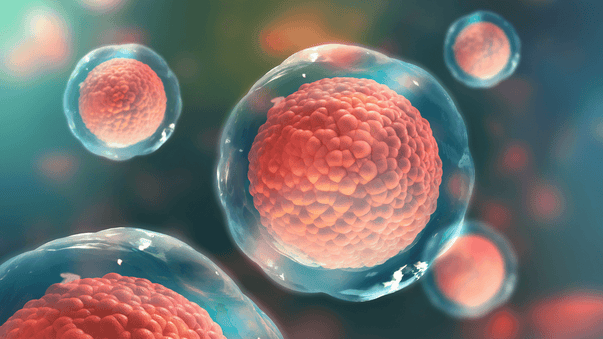One Treatment to Cure All Cancers?

The scary coronavirus epidemic that started in China is all over the news. Although earlier coronavirus outbreaks initially caused global havoc, they were successfully contained (see below). But the current news is disturbing.
There's also encouraging health and life science news. First and foremost, Cardiff University scientists discovered a “one-size-fits-all” cancer immunotherapy. It seems to work for many types of cancer (see below).
The discovery “raises the prospect of a ‘one-size-fits-all’ cancer treatment; a single type of T-cell that could be capable of destroying many different types of cancers across the population,” said Prof. Andrew Sewell, lead author of the Cardiff study, in a Cardiff University press release. “Previously nobody believed this could be possible.”
"There's a chance here to treat every patient," Sewell told BBC News.
“If this transformative new finding holds up, it will lay the foundation for a ‘universal’ T-cell medicine,” added Prof. Awen Gallimore.
These cautious words are meant to temper excessive enthusiasm. And they remind us that the road from basic research to medical practice is long and hard. However, there seem to be reasons for disciplined enthusiasm.
Safety testing is ongoing. Researchers want to ensure that the kT-cells modified with the new TCR recognize and kill cancer cells only.
“There are plenty of hurdles to overcome however if this testing is successful, then I would hope this new treatment could be in use in patients in a few years’ time,” said Sewell.
One-size-fits-all Therapy for Range of Cancers
Researchers at Cardiff University have discovered a new type of immune cell that offers hope of a “one-size-fits-all” cancer therapy.
In T-cell therapies for cancer, immune cells called T-cells are extracted from a patient’s blood, modified, and returned to the patient’s blood to seek and destroy cancer cells. Unfortunately, today’s T-cell therapies only work for certain types of cancer.
But the Cardiff study, published in Nature Immunology, describes a T-cell receptor (TCR) that can recognize many types of cancer. It does so via a single molecule called MR1, which is present on the surface of every cell in the human body.
T-cells equipped with the new TCR were shown, in the lab, to kill lung, skin, blood, colon, breast, bone, prostate, ovarian, kidney and cervical cancer cells. They were also shown to ignore healthy cells.
Previous Coronavirus Outbreaks Caused Havoc
The new cluster of viral pneumonia cases originating in Wuhan, China, marks the third time in 20 years that a member of the large family of coronaviruses has jumped from animals to humans and sparked an outbreak.
In a new JAMA Viewpoint essay, Anthony S. Fauci, director of the NIH's National Institute of Allergy and Infectious Diseases (NIAID), looks back at two earlier novel coronavirus outbreaks that initially caused global havoc. And he describes steps needed to contain the current one.
Viral Vectors Deliver Gene Therapies to Cells
Researchers led by a team at Massachusetts Eye and Ear have identified a novel cellular entry factor for adeno-associated virus vector (AAV) types. These are the most commonly used viral vectors for in vivo gene therapy.
Viral vectors are created from a virus that is made harmless by molecular engineering. They have shown promise transporting genetic therapy treatments to affected tissues.
A research paper published in Molecular Therapy indicates that a molecular “key” is required for most viral vectors, including those used in approved gene therapies, to gain access to the cell.
This could one day enable scientists to better explain, predict, and ultimately, direct viral gene transfers to specific tissues.
Compound Targets Oncogenic RNA in Mice
Scientists at Scripps Research Institute have developed a compound able to kill treatment-resistant cancer cells. It stops the spread of hard to treat cancer in laboratory mice, while leaving healthy cells untouched.
A study published in PNAS describes how the scientists designed a small-molecule compound that targets an oncogenic molecule called MicroRNA-21. An abundance of this molecule predicts lower survival in people with triple-negative breast cancer.
The compound recruits and activates the cancer cell's own disposal system to destroy itself.
Many Non-Oncology Drugs May Combat Cancer
Scientists at the Broad Institute of MIT and Harvard and Dana-Farber Cancer Institute tested approximately 4,518 drug compounds on 578 human cancer cell lines. They found nearly 50 that have previously unrecognized anti-cancer activity.
These drugs have been used to treat conditions such as diabetes, inflammation, alcoholism, and even arthritis in dogs.
The findings are detailed in a research paper published in Nature Cancer. They suggest a possible way to accelerate the development of new cancer drugs or repurpose existing drugs to treat cancer.
More Articles
Don't miss a beat! In our Pulse Newsletter, Thrivous curates the most important news on health science and human enhancement, so you can stay informed without wasting time on hype and trivia. It's part of the free Thrivous newsletter. Subscribe now to receive email about human enhancement, nootropics, and geroprotectors, as well as company news and deals.
Read more articles at Thrivous, the human enhancement company. You can browse recent articles in Thrivous Views. See other Pulse Newsletter articles. Or check out an article below.
-
Nanotechnology for Treatment of Atherosclerosis
Atherosclerosis, the accumulation of plaque inside artery walls that can lead to heart attacks and strokes, is the world’s No. ...
-
Living Programmable Organisms Developed in the Lab
In an impressive breakthrough, scientists have built living, programmable robots with frog cells (see first research summary below). "These are ...


